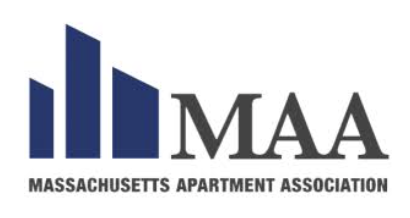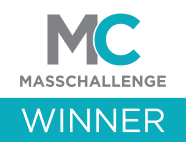Get The Best Property Management Software for Small Landlords
If you’re managing a few rental properties, or even just one, you don’t need the bloat, the enterprise pricing, or the six-week onboarding.
Smaller scale owners and landlords need diffent tools than the software larger property managment teams use. You need tech that’s easy, affordable, and makes your job less of a juggling act. Using all-in-one software can help small landlords streamline tasks like rent collection, tenant screening, and maintenance, all from a single platform.
This guide covers the best property management software for small landlords and DIY property managers. Whether you manage your own duplex or handle 25 units across town, these tools help you manage properties efficiently by centralizing key functions and simplifying day-to-day operations.
What Small Landlords Should Look for in Property Management Software
Before diving into platforms, it helps to define what really matters when you’re managing rental properties at a smaller scale. Choosing software that covers key tasks—such as rent collection, lease management, and maintenance tracking—and provides essential tools is crucial for small landlords to efficiently handle their responsibilities.
Rent Collection
Look for systems that support online rent collection, let tenants pay online by ACH or credit card, and offer automated rent reminders as a feature. You shouldn’t have to chase down payments.
Tenant Screening
The software should offer built-in screening reports (credit, criminal, and eviction history), allowing you to screen tenants efficiently and ensure you select quality tenants. Screening reports, including eviction reports, are essential tools that help landlords make informed decisions and choose reliable renters.
Maintenance Tracking
Tenants should be able to submit maintenance requests online, as effective maintenance management and maintenance coordination are essential for keeping your property running smoothly.
You should be able to track, prioritize, and respond quickly. Staying on top of maintenance tasks is crucial for smooth operations and satisfaction.
Financial Reporting
Choose software that makes it easy to generate financial reports, track rent payments, and stay organized for tax preparation. Effective financial management and financial organization are essential for small landlords to keep their rental business running smoothly. Look for platforms that offer detailed financial reports, allow you to track expenses, and assist in managing rental income to help maximize profitability.
Lease Management
It should support digital lease agreements, e-signatures, and store documents in one place, allowing landlords and tenants to sign lease agreements online as part of a streamlined leasing process. This saves time and helps with regulatory compliance.
User Experience
Avoid clunky, outdated dashboards. You want something user-friendly, mobile-compatible, and intuitive.
Affordability
For small landlords, every dollar counts. Look for platforms with free plans, transparent pricing, or pay-as-you-go models.
Security Deposit Management
Security deposits processes are frustrating and outdated. Renters and landlords often look for security deposit alternatives to checks because they’re more modern and easier to manage for both parties.
Best Property Management Software for Small Landlords
1. Landlord Studio
A lightweight platform designed specifically for DIY landlords managing a few properties, Landlord Studio is landlord software that streamlines rental management.
Key Features:
- Online rent collection with reminders
- Track expenses and mileage
- Automated income and expense reporting
- Mobile-first design
Pros:
- Tailored for very small landlords — even single-property owners
- Excellent mobile app
- Affordable pricing with a free trial
Cons:
- Limited advanced features (e.g., tenant portals, custom reports)
- Not ideal if you’re managing more than 10 units, as managing multiple properties or multiple rental properties may require more scalable solutions
Best for: Landlords who want mobile-first, simple software with robust bookkeeping.
2. Avail (by Realtor.com)
A full-featured but accessible rental management software platform that helps landlords manage the full leasing cycle.
Key Features:
- Rent collection, late fees, and payment tracking
- Screening reports with the ability to customize rental applications
- Lease templates and digital signatures
- Maintenance request dashboard
Pros:
- Free basic plan for unlimited units
- Easy onboarding, built-in guidance
- Excellent for first-time landlords, helping attract and manage prospective tenants
Cons:
- Some features (like FastPay) are paywalled
- Not customizable for more complex portfolios
Best for: First-time landlords looking for an easy, no-friction entry point.
3. Rentec Direct
One of the most powerful small landlord platforms — ideal for those managing multiple units but not quite ready for enterprise software, Rentec Direct is a comprehensive rental property management software solution.
Key Features:
- Full double-entry accounting
- Bank sync and reconciliation tools
- Tenant screening with credit, criminal, eviction
- Work order and vendor tracking
Pros:
- Strong accounting tools with tax prep features
- Very affordable for what it includes
- Owner and tenant portals
Cons:
- Dated user interface
- Steeper learning curve than others on this list, and may be more suitable for professional property managers handling larger portfolios
Best for: Landlords with growing portfolios who want accounting and control.
4. Rentable
A modern platform focused on security deposit automation, compliance, and creating a renter-friendly experience without sacrificing control.
Key Features:
- Automates security deposit collection, installment plans, and refunds
- Built-in workflows for state-specific compliance rules
- Tracks interest, refund deadlines, and unclaimed property issues
- Seamlessly integrates with other property management software, including real estate management software for comprehensive property oversight
Pros:
- Removes friction from deposit collection and refund processing
- Protects small landlords from legal risk with built-in compliance
- Renter-friendly experience encourages faster leasing
Cons:
- Focused on deposit automation — needs to be paired with a general PM system
- Not yet a household name (but growing fast)
Best for: Small landlords who want serious compliance features and a modern experience without managing deposits manually.
5. TenantCloud
TenantCloud is a full-service cloud-based property management system with free and low-cost tiers.
Key Features:
- Collect rent online with automatic reminders, including payments directly from a tenant’s bank account
- Tenant communication tools such as messaging and tenant portals
- Maintenance tracking and scheduling
- Customizable lease templates
- Financial dashboard with tax reports
Pros:
- Free for up to 75 units
- Nice balance of features and usability
- Cloud-based with mobile functionality
Cons:
- Limited integrations unless on higher plans
- Support can be slow at times
Best for: Small landlords looking for an all-in-one solution with a generous free tier. TenantCloud helps landlords manage properties efficiently.
Specialized Tools Worth Mentioning
Stessa
Ideal for real estate investors tracking rental income, expenses, asset performance, and property performance.
TurboTenant
A listing-focused tool that simplifies tenant screening, application processing, and pre-qualifying renters.
Google Forms + Spreadsheets
For ultra-lean operations, using free tools to collect rent, track income, and manage tenants is doable — but risky at scale.
Rentable for Small Landlords: Why It Belongs on This List
Most small landlords hate dealing with deposits. It’s confusing, legally risky, and varies by state. Rentable’s deposit automation platform simplifies that entire process — and protects you along the way.
Whether you’re collecting deposits in installments or trying to stay compliant across state lines, Rentable takes the manual admin off your plate. It also improves the renter experience, which helps reduce friction during leasing and move-outs.
If you’re using another platform for general management, Rentable plugs in as a lightweight, high-value add-on.
Try Rentable if you want to:
- Stop worrying about deposit law compliance
- Offer modern deposit alternatives to renters and fill your apartments faster
- Automate refunds, tracking, and unclaimed property
How to Choose the Right Platform for You
Here’s a simple way to approach the decision. Efficiently managing properties is crucial for small landlords, as it involves streamlining tasks like tenant communication, maintenance coordination, and online rent collection through the right software or digital tools.
- Consider your budget and the features you need.
- Think about how much time you want to spend on day-to-day management.
- Evaluate whether you prefer a fully DIY approach or want some tasks handled for you.
- Look for platforms that offer the specific tools or integrations you need.
Some platforms go beyond basic software by offering professional assistance and professional support. These hybrid property management solutions provide access to local leasing agents and tenant placement services, allowing landlords to delegate tasks such as finding tenants and coordinating maintenance to experienced professionals. This can be especially valuable for those who want to streamline managing properties without handling every detail themselves.
1. Count Your Units
- 1–5 units? Start with Landlord Studio, Avail, or Rentable as an add-on.
- 6–25 units? Consider Rentec Direct or TenantCloud.
2. Know What You Need
If you’re only collecting rent and tracking expenses, a basic free tool might work. If you’re managing maintenance, leases, and accounting, you’ll need something with more horsepower.
3. Check for Integrations
If you’re using Excel or QuickBooks for accounting, make sure your property management tool can export clean data — or better yet, sync automatically.
4. Don’t Overpay
You don’t need all the features AppFolio or Yardi offer unless you’re running hundreds of units. Pick something that covers your workflow without the enterprise bloat.
Final Thoughts: The Right Software Saves Time and Headaches
Small landlords wear a lot of hats — you’re the leasing agent, the accountant, the maintenance coordinator, and sometimes the bad cop. The right property management software doesn’t just save time — it protects your business, improves renter satisfaction, and gives you room to grow.
Whether you’re just getting started or trying to streamline a small portfolio, the tools above offer the flexibility, simplicity, and control you need.
And if security deposits are the biggest hassle on your plate, Rentable might be the smartest upgrade you can make this year.






